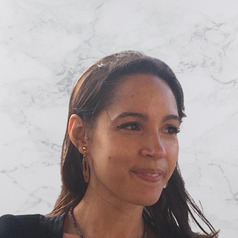From Facebook’s psychological experiments on unwitting users in 2014 to the Cambridge Analytica scandal in 2018 or the Facebook files in 2021, controversies involving the company have been numerous. Despite an increased demand for transparency, Mark Zuckerberg, the CEO of Meta (formerly known as Facebook), has never been too inclined to commit to any specific actions.
This can be explained by the fact that social media operate in the attention economy. Their algorithms – the ranking and recommendation systems they use to filter and propose content – also aim at maximizing the time that users spend on their platform. The goal is to expose them to ads for longer periods of time, and also collect more personal data that can subsequently be monetized. To do so, social media companies design their algorithms to trigger behavioral modifications – they raise up our desires and encourage us to immediately satisfy them, and so deprive us of the ability to truly choose.
Losing the tracks of misinformation’s spread
My ongoing research centres on how conspiratorial social movements – including QAnon, the infamous group that was central to the January 6, 2021, assault on the US Capitol – are constructed and grow. It was fortuitous that in 2019 Meta started a pilot program to “partner with researchers and academics to help them study the spread of public content on Facebook and Instagram”. The program prioritised research on topics such as misinformation, elections and Covid-19, with analysis possible through Facebook’s CrowdTangle database.
However, a quick look at the documentation describing the available data made it clear that CrowdTangle had been designed in a way that made it close to impossible to conduct research on large-scale misinformation spread by groups such as QAnon. In particular, content deleted from Facebook or Instagram was also deleted from CrowdTangle. While Meta had been reluctant to stop the spread of QAnon misinformation, when the company finally took action, it also removed the content from the database that researchers were supposed to use to… research QAnon.
Not only is the CrowdTangle database itself opaque, the application process is as well. To apply, researchers have to provide their personal information and briefly describe their research and their intended use of the data. Once the application is completed, an automated e-mail is sent that states that Meta will be in touch if they decide that the researcher can be admitted, without any further information. While academics are used to being evaluated, what is less usual is to be given no clue about the expectations nor evaluation criteria, that normally serve as an informal contractual basis. What did Meta expect to get from this program?
When looking for data, if they cannot be directly accessed, a last (and very efficient) recourse is to draw on the Internet Archive’s Wayback Machine, which provides access to web pages as they were at a given date. While it was possible to access deleted Twitter accounts or YouTube pages, for example, Facebook was inaccessible. Even finding out why Facebook wasn’t archived was challenging. It is on the website archive-it.org that an explanation appeared: Facebook blocks the archival of its pages and groups, making it the most restrictive media.
As a result, it is extremely difficult to study how conspiracy theories and disinformation spread and grow on Meta’s platforms. Of course, it is possible to follow it in real time, before Meta takes action and deletes such content both from its public platforms and private database. Yet researching such events require being able to access and study their dynamics after the fact. Indeed, this is the only way that the full puzzle can be reconstructed.
Erasing the past
Meta’s hindering the study of disinformation spread on its social media is all the more worrying as its CEO is conducting an ideological campaign. He hopes “to change how people relate to their governments and social institutions” and acknowledged that he was best described as a libertarian, a populist ideology that in some forms advocates for the reduction of government to its absolute minimum.
Yet libertarianism in Meta’s view seems to mean replacing state governments with private companies, resulting in replacing democracies with a sort of techno-feudalism. These digital giants have indeed reshaped all of our institutions, from the social sphere to the workplace and in exchange have imposed a regime of generalized surveillance. This new regime has resulted in an increased concentration of wealth, greater precarity of jobs, that resists – thanks to information asymmetry and intense lobbying – the imposition of any rules and regulations on what it does.
As companies such as Meta continue to gain power, their practice of erasing any realities that do not suit their interests is reminiscent of the old Soviet model rather than making the world more “open and connected”, as Mark Zuckerberg has paradoxically claimed.



 BTC Flat at $89,300 Despite $1.02B ETF Exodus — Buy the Dip Toward $107K?
BTC Flat at $89,300 Despite $1.02B ETF Exodus — Buy the Dip Toward $107K?  JPMorgan Lifts Gold Price Forecast to $6,300 by End-2026 on Strong Central Bank and Investor Demand
JPMorgan Lifts Gold Price Forecast to $6,300 by End-2026 on Strong Central Bank and Investor Demand 































